Google Adsense—>

Pet Evacuation Plan
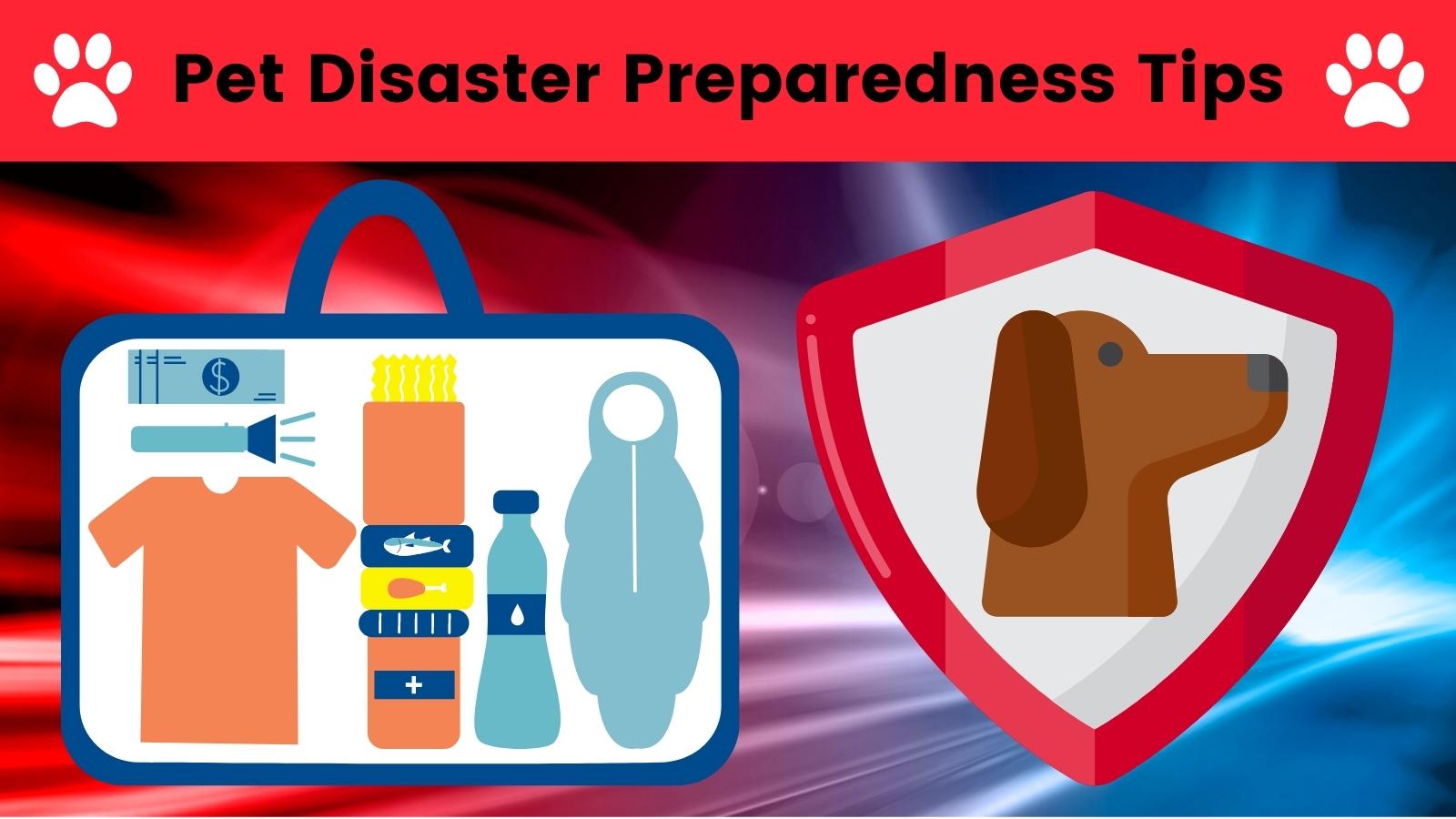
Do you have a pet disaster preparedness plan for your pets and family? Preparing a disaster and pet evacuation plan prior to an emergency will help keep you and your family safe during a disaster.
Your personal pet disaster plan and kit will be a little dependent on where you live, your evacuation route, and the kinds of disasters your area is prone to. Here are some tips to keep you and your pet safe during a natural disaster.
Alex Schechter, DVM, founder of Burrwood Veterinary, suggests creating a checklist of essential items for your pets, such as food, water, medication, and identification. A prepared checklist will help ensure you remember everything you and your pet may need. This is especially helpful during a time of stress, such as an evacuation.
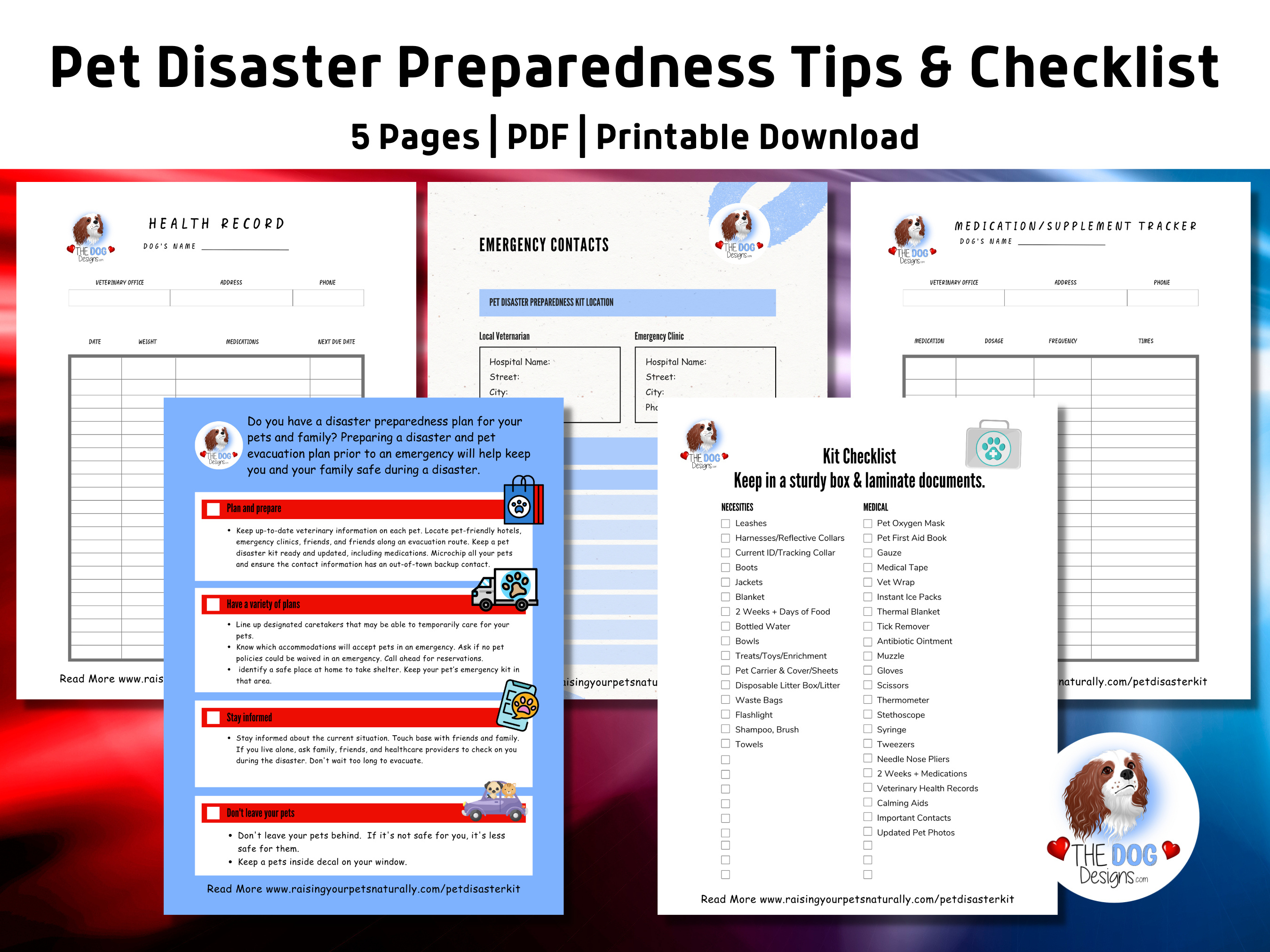
Dr. Schechter also suggests that your pets be microchipped and wearing updated identification tags. Double-check to ensure your contact information is updated on your pet’s microchip records. If you can add an out of the area contact, do it. Remember, you may not be reachable during a disaster, but someone out of the area may be. It’s not a terrible idea to actually write an emergency phone number in marker on the inside of your pet’s thigh or ear, particularly if he is not microchipped. If you are able to have a GPS tracker on your pets, this is an extra safety measure.
Along with your pet’s checklist, you should have an emergency contact list. This should include your pet’s local veterinarian, emergency animal hospital, and out-of-town friends and family who may be able to care for your pet.
Pet Disaster Preparedness Kit
The best thing you can do is always to have a pet disaster preparedness kit filled and ready to go. Keeping all your pet’s supplies in a waterproof container is a great option. I would, however also have a backpack in case you need to have something a bit more portable during an evacuation or emergency. You can never have too many options.
Keep your pet’s emergency kit in a handy location. Every couple of months, go through the kit to remove and update any information and outdated food, medications, or contact numbers.
Inside Your Pet’s Emergency Kit
- Food for two weeks. If you feed your pet a fresh-food diet, I would recommend purchasing freeze-dried food.
- Your pet’s updated medical records stored in a plastic bag.
- Medications for two weeks.
- Leashes
- Harnesses/Reflective Collars
- Current ID/Tracking Collar/Pet Photo
- Boots
- Jackets
- Blanket
- Bottled Water
- Bowls
- Treats/Toys/Enrichment
- Pet Carrier & Cover/Sheets
- Disposable Litter Box/Litter Waste Bags
- Flashlight
- Shampoo, Brush
- Towels
- Pet Oxygen Mask
- Pet First Aid Book
- Gauze
- Medical Tape
- Vet Wrap
- Instant Ice Packs
- Thermal Blanket
- Tick Remover
- Antibiotic Ointment
- Muzzle
- Gloves
- Scissors
- Thermometer
- Stethoscope
- Syringe
- Tweezers
- Needle Nose Pliers
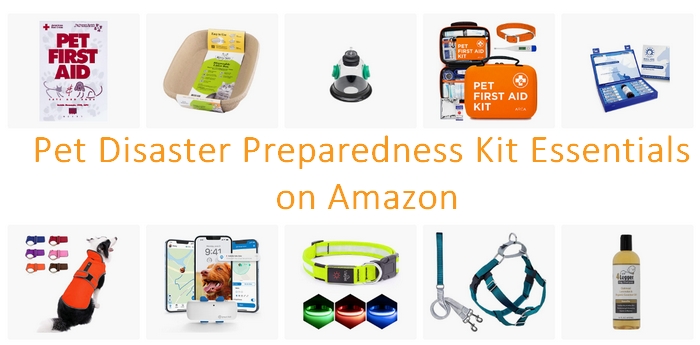
Plan your evacuation route prior to leaving. Plan a variety of travel routes in case you run into road closures. Look for pet-friendly shelters, boarding facilities, and hotels along your route. Call ahead for reservations. If there are not any pet-friendly hotels, call any hotel along your route and ask if they would waive their no-pet policy.
Stephen Quandt, a cat behaviorist who has worked in the ASPCA’s Field Investigations and Response Team, offers these tips. “Practice evacuating with your family and your pets. Make sure you can get your cats and small dogs into a carrier and into your car. Practice staying calm. Your pet watches your body language for cues as to how to react, your stress can become their stress, and a disaster will be stressful enough even if you remain calm.”
Mr. Quandt also recommends, “If you believe an evacuation order may be coming, do NOT leave your pet behind should the order to evacuate come. If it isn’t safe for you to stay, then it isn’t safe for your pet. To prepare for an emergency, don’t wait for the disaster to be imminent—get prepared now.”
Remember, pets are family. By having the right pet evacuation plan and kit in place, you and your pet will be able to safely navigate a difficult and possibly dangerous situation.
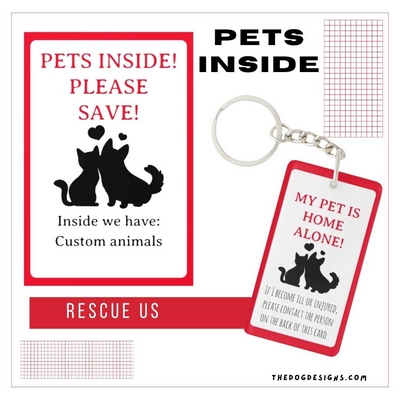
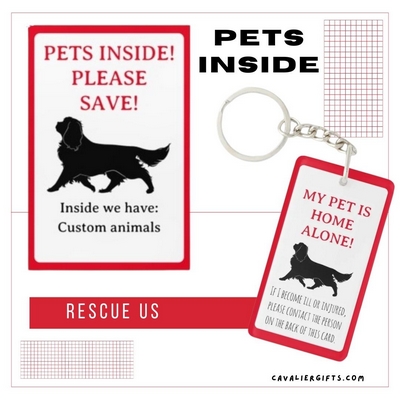
Your questions or comments are welcome below.
Are you looking for even more ways to stay up to date with Raising Your Pets Naturally? Sign up for the newsletter for more tips and promotions. Don’t forget to be social and Like, Follow and Subscribe. Comments below are always welcome.
Facebook Twitter Pinterest Instagram YouTube
 |
 |
 |

If you found my blog helpful, please consider a small contribution. Dexter and I thank you! |
Google Adsense—>



